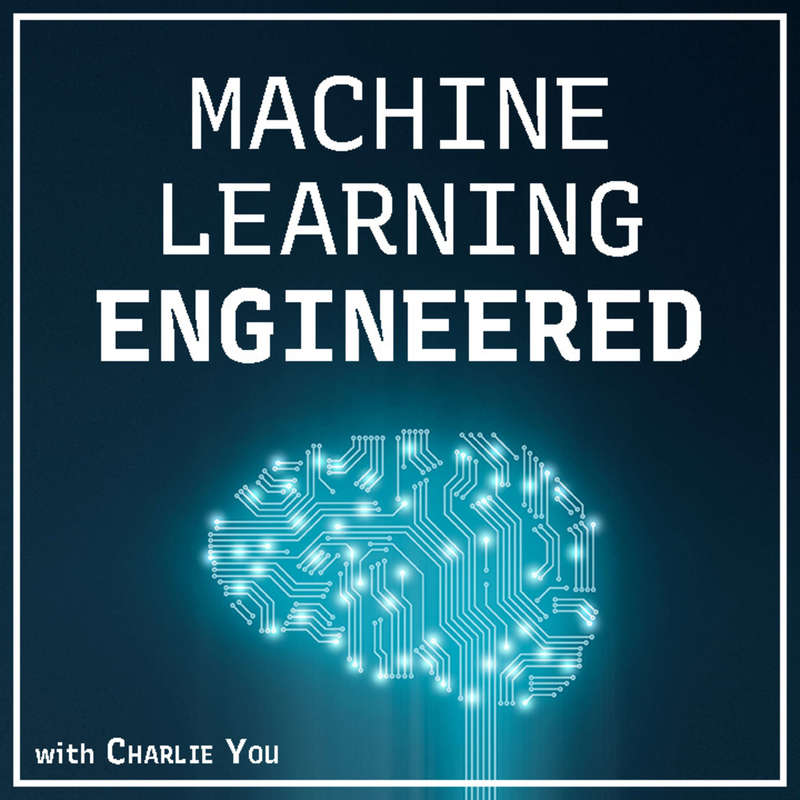
This episode currently has no reviews.
Submit Review- Podcast |
- Machine Learning Engineered
- Publisher |
- Charlie You
- Media Type |
- audio
- Podknife tags |
- Artificial Intelligence,
- Business,
- Careers,
- Data Science,
- Interview,
- Machine Learning,
- Technology
- Publication Date |
- Dec 15, 2020
- Episode Duration |
- 01:33:39
Andreas Jansson is the co-founder of Replicate, a version control tool for machine learning. He holds a PhD from City University of London in Music Informatics and was previously a machine learning engineer at Spotify, researching and applying algorithms for music information retrieval.
Learn more about Andreas:
https://www.linkedin.com/in/janssonandreas/
Every Thursday I send out the most useful things I’ve learned, curated specifically for the busy machine learning engineer. Sign up here: http://bitly.com/mle-newsletter
Follow Charlie on Twitter: https://twitter.com/CharlieYouAI
Subscribe to ML Engineered: https://mlengineered.com/listen
Comments? Questions? Submit them here: http://bit.ly/mle-survey
Take the Giving What We Can Pledge: https://www.givingwhatwecan.org/
Timestamps:
02:30 Andreas Jansson
07:30 Overview of music information retrieval (MIR)
13:30 Why use spectrograms and not raw audio?
19:55 The potential for transformers in MIR
22:45 Most exciting applications for ML in MIR
29:20 Challenges in putting ML into production
36:45 What Andreas imagines for the future of ML tools
41:45 Why he's building a tool for ML version control (http://replicate.ai/)
52:55 What Replicate enables via integration or as a platform
01:02:55 Learnings from doing customer discovery for Replicate
01:14:10 "Github for ML models and data"
01:22:30 Rapid fire questions
Links:
WaveNet: a generative model for raw audio
Singing Voice Separation with Deep U-Net CNNs
Joint Singing Voice Separation and F0 Estimation with Deep U-Net Architectures
vanity.com/">arXiv Vanity
Andreas Jansson is the co-founder of Replicate, a version control tool for machine learning. He holds a PhD from City University of London in Music Informatics and was previously a machine learning engineer at Spotify, researching and applying algorithms for music information retrieval.
Learn more about Andreas:
https://www.linkedin.com/in/janssonandreas/
Every Thursday I send out the most useful things I’ve learned, curated specifically for the busy machine learning engineer. Sign up here: http://bitly.com/mle-newsletter
Follow Charlie on Twitter: https://twitter.com/CharlieYouAI
Subscribe to ML Engineered: https://mlengineered.com/listen
Comments? Questions? Submit them here: http://bit.ly/mle-survey
Take the Giving What We Can Pledge: https://www.givingwhatwecan.org/
Timestamps:
02:30 Andreas Jansson
07:30 Overview of music information retrieval (MIR)
13:30 Why use spectrograms and not raw audio?
19:55 The potential for transformers in MIR
22:45 Most exciting applications for ML in MIR
29:20 Challenges in putting ML into production
36:45 What Andreas imagines for the future of ML tools
41:45 Why he's building a tool for ML version control (http://replicate.ai/)
52:55 What Replicate enables via integration or as a platform
01:02:55 Learnings from doing customer discovery for Replicate
01:14:10 "Github for ML models and data"
01:22:30 Rapid fire questions
Links:
WaveNet: a generative model for raw audio
Singing Voice Separation with Deep U-Net CNNs
Joint Singing Voice Separation and F0 Estimation with Deep U-Net Architectures
vanity.com/">arXiv Vanity
This episode currently has no reviews.
Submit ReviewThis episode could use a review! Have anything to say about it? Share your thoughts using the button below.
Submit Review